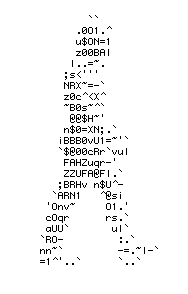 Who are we? What is our essential identity? What if I said that we, as human beings, exist in the form of something as seemingly ephemeral and changeable as a story? I want to suggest just that: we don’t exist separately from the stories we tell about ourselves. Indeed, our individual autobiographical identities–as we quietly narrate our lives to ourselves every day, and to others when they ask us–are our essential identities.
Who are we? What is our essential identity? What if I said that we, as human beings, exist in the form of something as seemingly ephemeral and changeable as a story? I want to suggest just that: we don’t exist separately from the stories we tell about ourselves. Indeed, our individual autobiographical identities–as we quietly narrate our lives to ourselves every day, and to others when they ask us–are our essential identities.
Why is the pull of narrative, of story-telling, so strong? Some would say it is because we all exist as extended selves–selves with knowable pasts and imagined futures, selves stretched out in time. This temporal dimension of our lives inextricably links them to the force of narrative. Each day, we live, perform, and revise the unfolding narrative of our lives. Barely conscious of it all, we are masterful self-authors, deft plotters with a sense for drama, and for the many crises and recoveries, major and minor, that mark our lives.
But these stories don’t exist in a vacuum of our own creation. They exist in a dynamic mixture of agreement and tension with the broader societal stories that presume to tell us what it means to be a man or woman, a mother or father, a son or daughter, a student or teacher, an american or world citizen, a lover or a hater. I’m curious what you make of this suggestion–one with roots in the work of recent philosophers, developmental psychologists and literary theorists. To put it in the telling language of cliche: what’s your story? A fitting question indeed on the eve of a course on autobiography, on what what happens when lives become stories.

